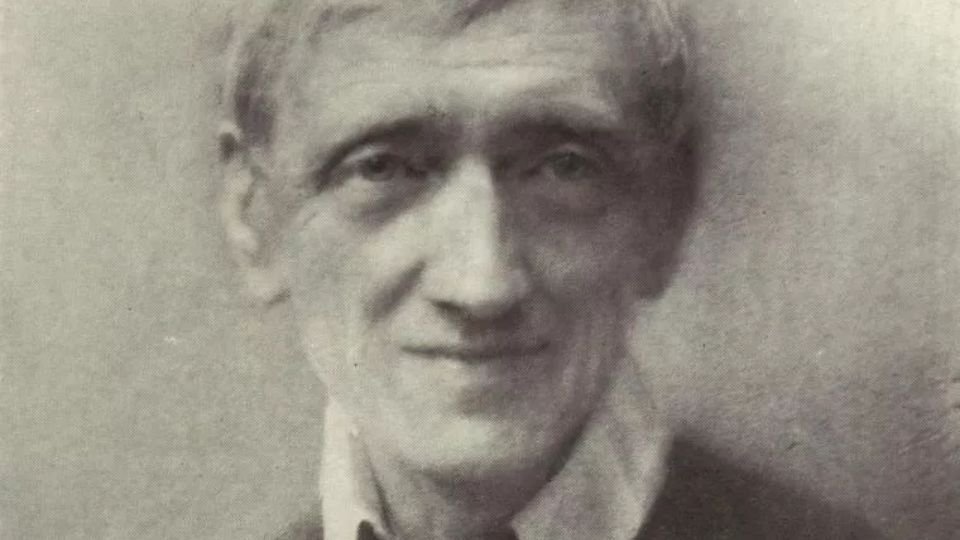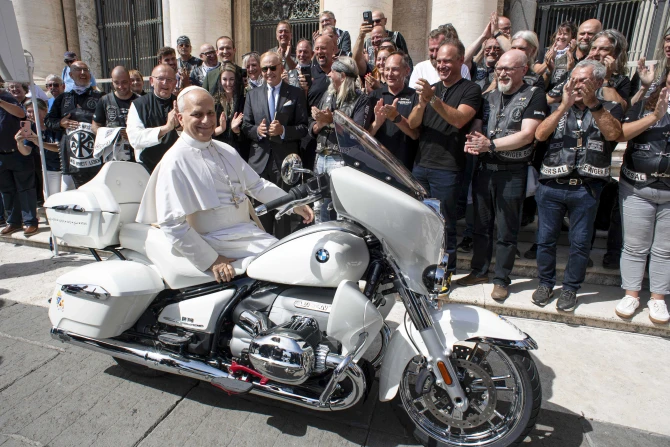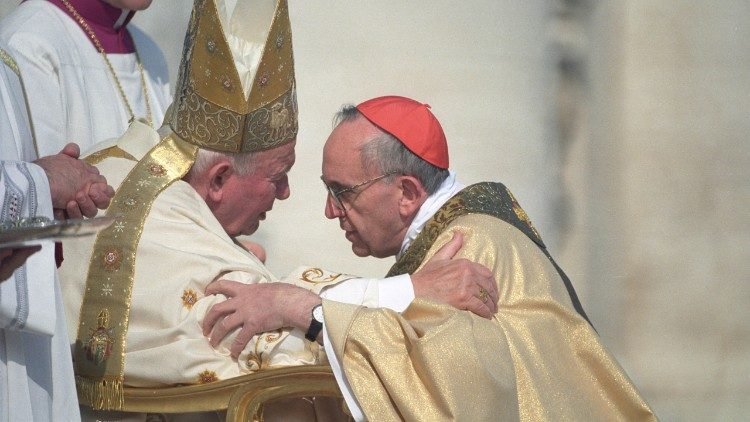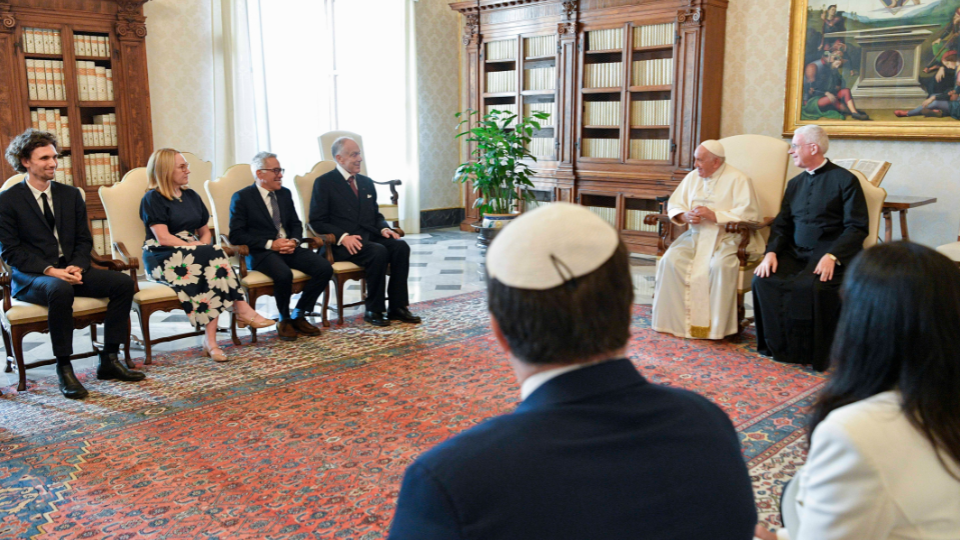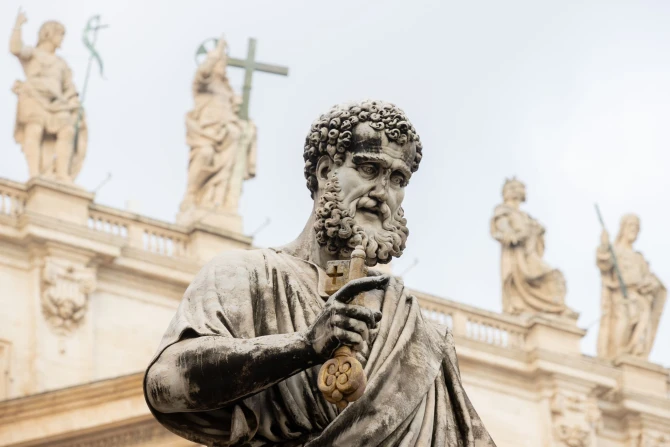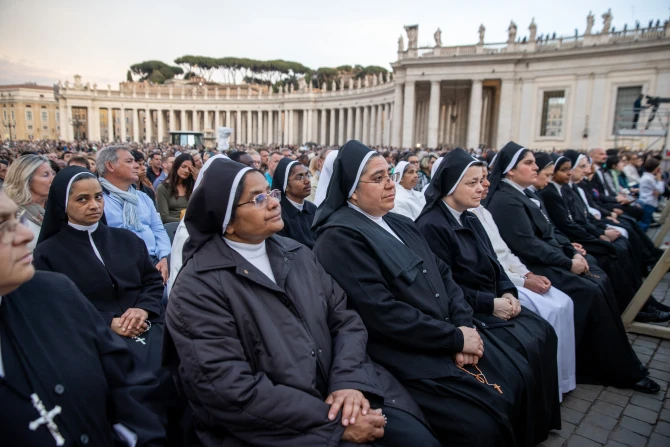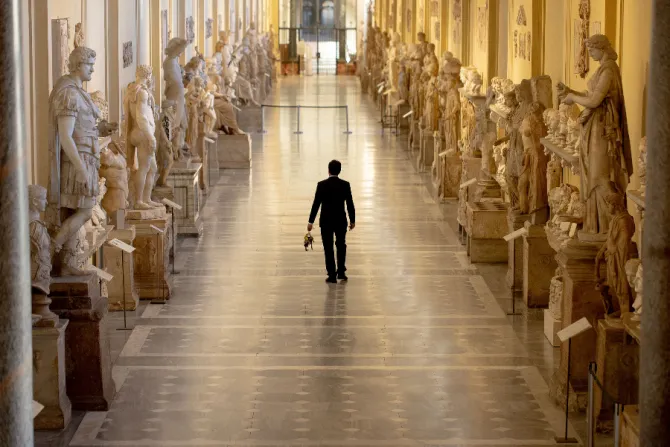As England shows signs of a Catholic revival, Newman’s voice is being recognized as one the modern world needs to hear.
SIGN UP FOR OUR NEWSLETTER HERE
CANTERBURY, England — Pope Leo XIV’s decision to proclaim St. John Henry Newman the 38th Doctor of the Universal Church will help bring the 19th-century English saint’s teachings to a world in great need of them and at a time when England appears to be at the beginning of a Catholic revival, say those close to the saint’s cause.
“This is going to do so much good, dare I say, in the modern world of today because of Newman’s ideas,” Oratorian Father Ignatius Harrison — a co-actor, or official promoter, of the Newman cause — told the Register July 31. “I think this has come at just the right time. I see it as providential.”
Msgr. Andrew Wadsworth, superior and founder of the Oratory in Washington, D.C., said St. John Henry Newman “is a saint for our time and a sure guide to all who seek the truth.” Newman, he added, “thought himself into the Catholic Church through the reading of the Fathers of the Church. He is the greatest theologian ever to have written in the English language.”
Similar sentiments were shared by Society of the Work Sister Mary-Birgit Dechant, director of the Newman Center in Littlemore, Oxford, where Newman was received into the Catholic Church in 1845. Sister Mary-Birgit, who said her community was “most happy and excited” by the news, told the Register she saw it “as an invitation to read more of his works, to follow more closely his teaching.”
“He taught so much about the development of Christian doctrine, about the importance of conscience, the importance of the laity and so many other points which are so vital for our time,” she said.
The Vatican announced St. John Henry Newman would be proclaimed a Doctor of the Church in a brief statement Thursday, saying that Pope Leo XIV had made the decision during a July 31 audience with Cardinal Marcello Semeraro, prefect of the Dicastery for the Causes of Saints.
The Vatican said the Holy Father “confirmed the positive opinion” of the dicastery’s plenary session of cardinals, bishops and members, adding that the “title of Doctor of the Universal Church will soon be conferred on St. John Henry Newman.”
The news came after the Bishops’ Conference of England and Wales had formally petitioned Pope Francis to confer the title in May 2024. The initiative was strongly supported by other bishops’ conferences, including those of the United States, Ireland, and Scotland, as well as many academic institutions and religious communities worldwide.
Cardinal Vincent Nichols of Westminster and president of the Bishops’ Conference of England and Wales said in a statement he was “delighted and thrilled” at the announcement, adding this recognition of the English saint’s writings as a “true expression of the faith of the Church is of huge encouragement to all who appreciate not only his great learning but also his heroic sanctity in following the call of God in his journey of faith, which he described as ‘heart speaking unto heart.’” He stressed that Church of England bishops had also added their voices in support of Newman receiving the honor.
Archbishop Bernard Longley of Birmingham said he was “immensely grateful” to Pope Leo for conferring the title on the 19th-century saint, and noted that he is only the third Englishman to be afforded the title, after St. Bede the Venerable and St. Anselm, who was an Italian native but served 16 years as archbishop of Canterbury in the 12th century.
Newman and Two Leos
Born in London in 1801, Newman was a vicar in the Church of England before he became a leading figure in the Oxford Movement that aimed to revive the Church of England’s Catholic character. At considerable personal cost, he was received into the Catholic Church in 1845 and went on to found an Oratorian community — a congregation of secular priests living in community without vows — in Birmingham. The Oratory of St. Philip Neri was the first house of the Oratorians in the English-speaking world. He also played a foundational role in establishing the Catholic University of Ireland, now University College Dublin.
Best known for such works as Apologia Pro Vita Sua and The Idea of a University, it was the Holy Father’s namesake, Leo XIII, who made Newman a cardinal in 1879 in recognition of his contributions to the Church.
“One of the earliest acts of Leo XIII’s pontificate was to create Newman a cardinal,” noted Msgr. Wadsworth. “Now Leo XIV has similarly honored Newman in a signal way at the beginning of his pontificate.”
More than 15,000 people lined the streets of Birmingham when Newman died in 1890 at the age of 89. He was beatified in 2010 during Pope Benedict XVI’s state visit to England, and Pope Francis canonized him in St. Peter’s Square in 2019.
To be proclaimed a Doctor of the Church means that the person not only possesses great holiness but that their teachings demonstrate deep insight and orthodoxy, and that they have had a significant and lasting impact on theology or doctrine through their research, study, or writing.
Newman’s Positio super Ecclesiae Doctoratu — the document upon which the dicastery made its decision detailing all his doctrinal works — was compiled by the postulator of St. John Henry’s cause, Father George Bowen of London’s Brompton Oratory, together with a group of some 20 scholars.
Also making a large contribution was the Pittsburgh-based National Institute for Newman Studies, which worked closely with the bishops of England and Wales and Father Bowen to petition Newman’s cause to be made Doctor of the Church. Their work involved not only facilitating Vatican access to all of Newman’s published works, but also coordinating contributions from Newman scholars who worked on the fourth chapter of the position on Newman’s “Eminent Doctrine,” and editing and compiling the positio in coordination with Father Bowen.
The announcement is “both a joyous and momentous occasion,” the institute said in a statement, adding it was “blessed to have played a critical role in Newman’s cause just several years after his canonization.”
Father Harrison noted the speed at which contributions to the positio were completed and that the “substantial volume” was given to the Dicastery for the Causes of Saints and Cardinal Semeraro, who, Father Harrison said, has been “a great supporter throughout the whole process.”
Father Harrison pinpointed five key teachings of Newman, which he believes have most relevance to the modern world: his insight into the development of doctrine — “that things have to change in order to remain the same, paradoxically, that their expression has to change;” Newman’s ideas on education, that it “is for life and for the afterlife, not just about league tables and passing exams;” his belief in the primacy of conscience as “being the still small voice of God within us;” his conviction that science and religion, if true, “both come from the same source of truth, God himself, so they are not in conflict, but can and should work together;” and that the laity is “not supplementary” but “crucial to the very foundation of the Church, and that he wanted an informed, and well-educated laity for the Church’s mission.”
For Sister Mary-Birgit, Newman’s great strength was that he spoke to the “intellect and to the heart, and that’s a wonderful combination.”
Development of Doctrine Disputes
The issue of development of doctrine has been controversial in recent years, especially following the documents Amoris Laetitia (The Joy of Love), which allowed access to Holy Communion for divorced and civilly remarried Catholics in some cases, and Fiducia Supplicans, which permitted the non-liturgical blessing of same-sex couples.
Many contemporary theologians and Church leaders have invoked Newman to justify such changes as examples of doctrinal development. Critics, however, have argued that their efforts often involve twisting Newman’s intention, using his authority to promote doctrinal “paradigm shifts” that sever continuity with traditional beliefs, especially regarding sexual ethics and moral teachings.
Asked if Newman being made a Doctor of the Church might cause his teaching to be further exploited in this regard, Msgr. Wadsworth said, “Not if we are true to what John Henry Newman taught. I think that we are better able to counter such attempts by reiterating what he has written.”
The timing of today’s announcement is also significant, coming at a time when the Catholic faith is showing signs of revival, particularly in England. Father Harrison said he believed the announcement was providential in that regard, and that Newman’s teaching will resonate with many searching for the one true faith.
“The thing about Newman is that his theology is not scholastic, it’s scriptural, it’s patristic, it’s empirical to a certain extent,” Father Harrison said. “It takes our humanity very seriously. There’s nothing dry or formulaic about him.” He also saw it as significant that Pope Leo would announce the conferral of the title as the new Pope “thinks about things theologically and spiritually.”
Sister Mary-Birgit recalled that Newman himself knew he was writing “not just for his time, but for years to come after him,” so the announcement that he will be made a Doctor of the Church “is a wonderful gift for the Church in England and for the Universal Church.”
The Vatican is expected to reveal the date for the formal proclamation soon, which may be made through an apostolic letter or at a papal Mass in St. Peter’s Basilica. The last saint to be declared a Doctor of the Church was in 2022 when Pope Francis conferred the title on the second-century bishop, St. Irenaeus of Lyon.
This article was originally published by NCRegister.

